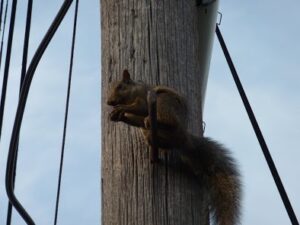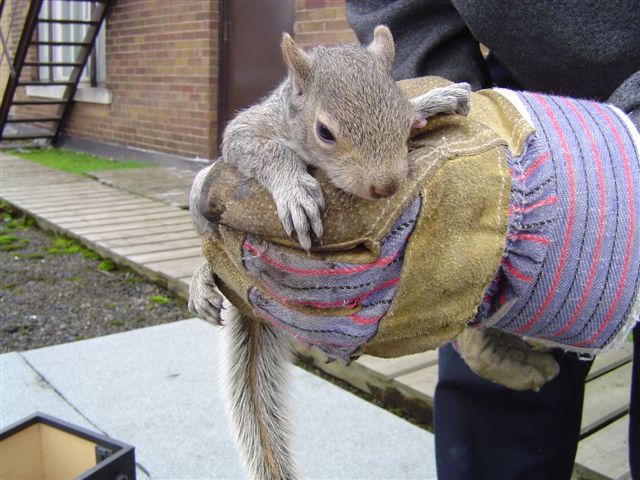With their beady eyes, fluffy tails, and perky personalities, squirrels certainly don’t appear dangerous. Many people find them charming and encourage their presence in the yard. Even their name is cute. Things aren’t always what they seem, though, and you may have heard stories about squirrels attacking humans. Is there any truth to these stories, or are they just urban legends? If you have squirrels on your property, do you need to call Skedaddle wildlife control Oshawa?
A few squirrels frequenting your property usually isn’t much of an issue, as long as you observe them from a safe distance. If they take up residence inside your home, you have a problem that typically requires squirrel removal.
Do Squirrels Attack People?
It is very rare for squirrels to attack people, but there have been documented cases of squirrels attacking and biting people and pets sometimes severely enough to cause injury. It is difficult to find statistics on squirrel attacks, though. The attacks are rarely fatal, and some may be so mild that people don’t even think to report them.
Squirrels are normally timid, docile creatures. If you approach one, it will typically run away. Nevertheless, a squirrel that feels cornered and can see no means of escape may go on the offensive. Squirrels may also attack to protect their young. A diseased squirrel may be more likely to show aggressive or hostile behavior towards human beings. However, when a squirrel does attack, it is not always possible to determine why.
Can Squirrels Spread Diseases to Humans?
Squirrels rarely contract rabies. It is very unlikely, though not impossible, that a squirrel will transmit rabies to a human or pet by biting. On the other hand, squirrels can transmit other diseases to humans, often indirectly. Like most rodents, squirrels carry parasites, such as fleas and ticks, that can be vectors for diseases. Examples include bacterial infections like Lyme disease and the bubonic plague. Rodents like squirrels can also spread infections through their urine.
Because a sick squirrel may be dangerous and unpredictable, you should look for any signs of disease and avoid any squirrels that exhibit them. Suspicious signs include weakness or lethargy, visible tumors, and bald spots, which indicate skin diseases.
How Can You Co-Exist Peacefully With Squirrels?
You do not have to scare squirrels away from your yard, which most likely wouldn’t work anyway. At the same time, you do not necessarily want to encourage their presence either. Here are some tips for peaceful co-existence:
- Do Not Feed the Squirrels
Wild animals that are fed by humans can become aggressive. It actually isn’t healthy for the squirrels either, because people do not necessarily give them food that is good for them. Do not attempt to feed squirrels by hand. If you have bird feeders in your yard, try to find the squirrel-proof variety.
- Do Not Attempt To Touch or Handle a Squirrel
Though cute and fluffy, squirrels are still unpredictable wild animals. Attempting to handle one could provoke an attack from a squirrel that feels threatened. Putting your hands on one could also expose you to parasitic diseases. In particular, do not handle squirrel babies, or the mother may become aggressive in defending them. Remember to teach your children the same practices as well.
- Do Not Allow Squirrels To Take Up Residence in Your Home
Squirrels in the yard are fine, but squirrels inside your house can be dangerous and destructive. They can chew through pipes and electrical wires, putting your home at risk for water leaks or fires. Though they will likely try to avoid any contact, they may expose you to disease through their excrement.

What Can You Do About Squirrels In Your Home?
Contact our Oshawa Skedaddle Humane Wildlife Control team for effective squirrel removal. Our professionals can remove the squirrels safely, then decontaminate the area and prevent them from coming back.




